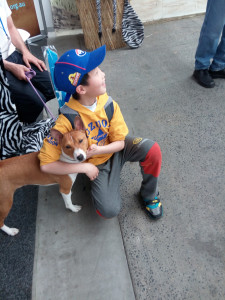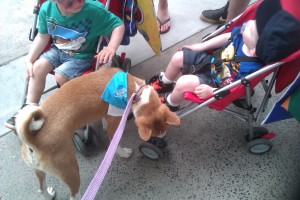Looking for the right dogs breed for your lifestyle? One of the first considerations It is to research what the breed was originally bred for. This will give you some clues as to what temperament, exercise and training needs can be expected.
So what was the Basenji bred for? The Basenji is a breed that have evolved rather than being ‘created’ by man. The Basenji is a hunting dog. It would have hunted for its own food and survival. Its brain has evolved to be a ‘self thinker’ and to be one step ahead of any animal that might consider a Basenji its next meal and to out whit the animals it preyed upon. Basenjis would scavenge for rodents and any leftovers around the villages of the Indigenous people of its homelands, the Congo and areas of Equatorial Africa. Tribes such as the Azande of Southern Sudan and Congo and the Pygmies of the Ituri Rain Forest realised that the Basenjis would be excellent to assist them hunting.They noticed their hunting ability, their agility and their fearless determination. These peoples would train the dogs to flush and chase game into nets. The huntsmen would spear the game. The Basenjis would also chase and catch fowl bringing the bird back to his mater to dispatch. The following instincts should be considered when thinking of a Basenji. These traits translate into the breeds ‘built-in’ behaviour patterns:
- Strong prey drive
- Fearless determination
- Independent ‘self thinker’




